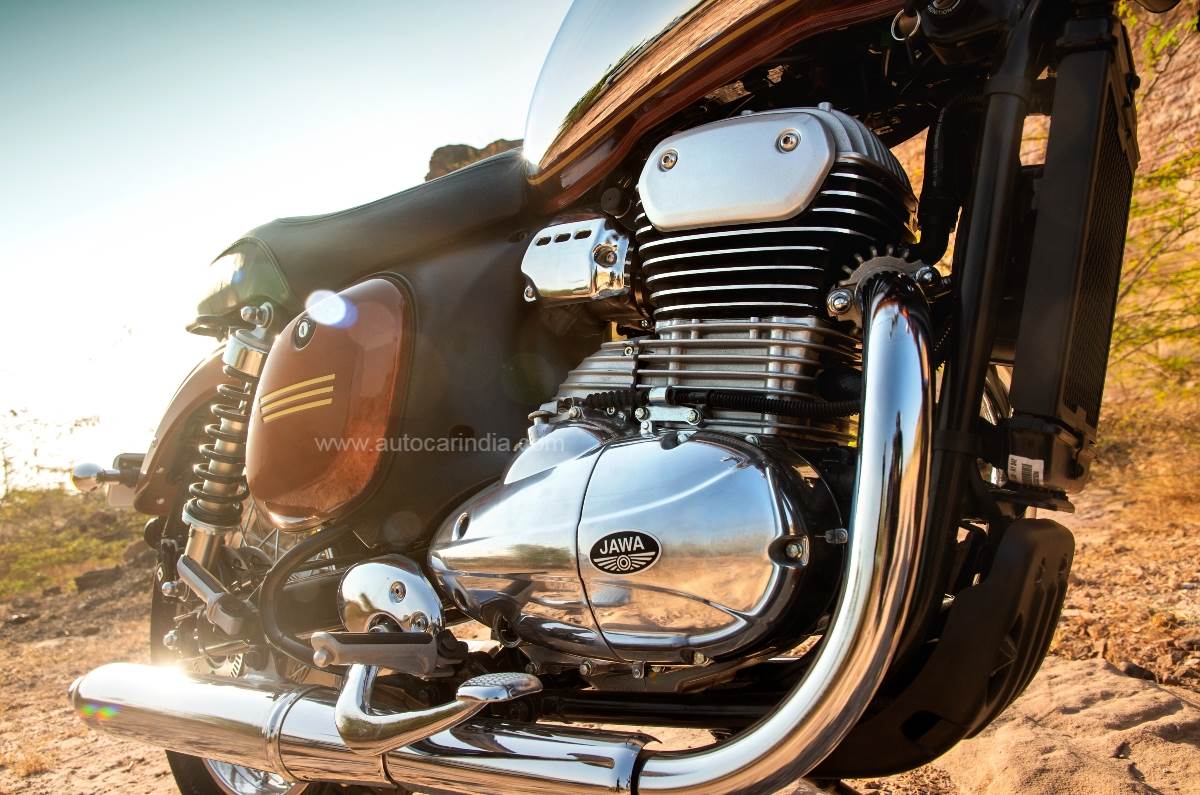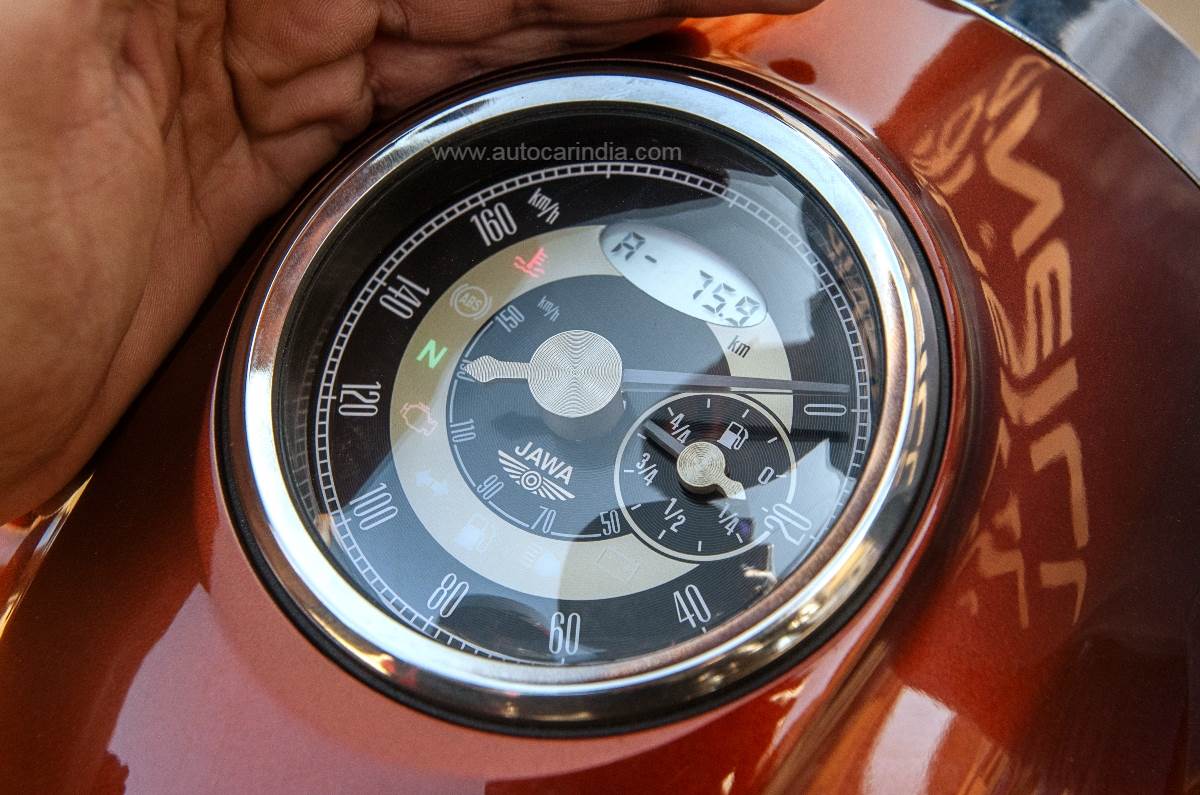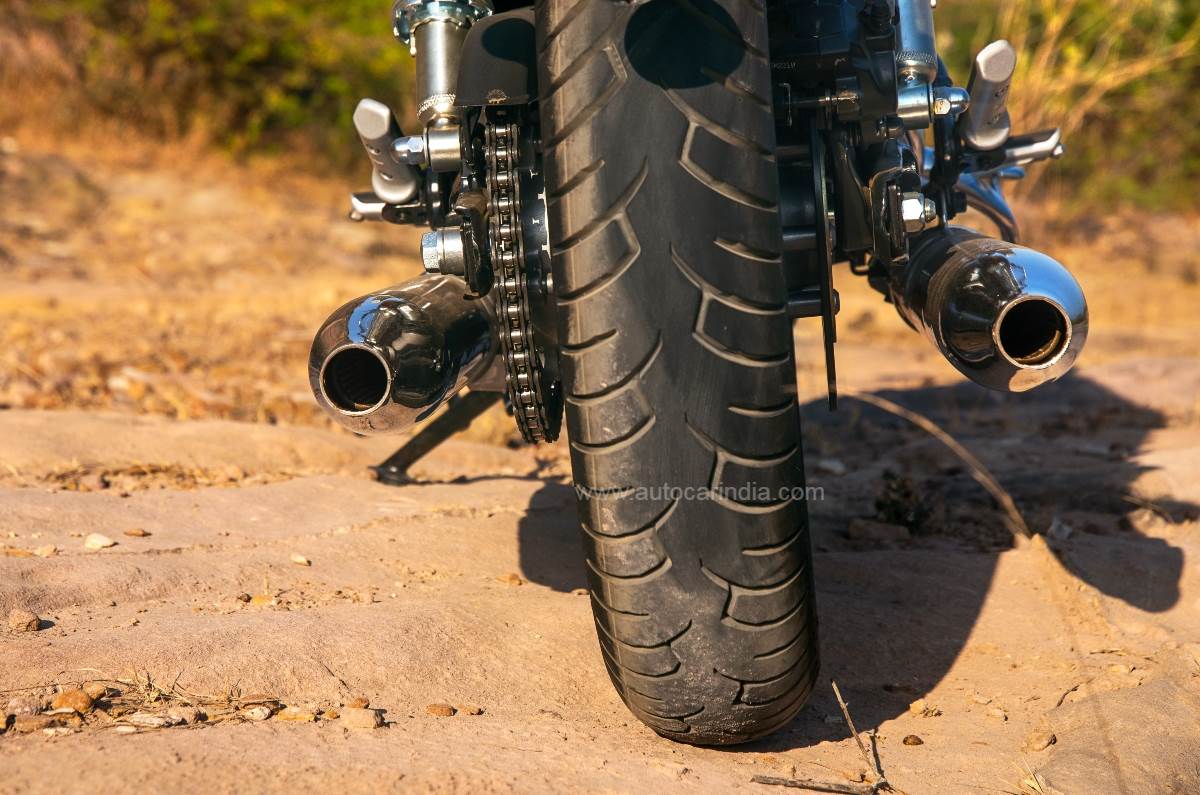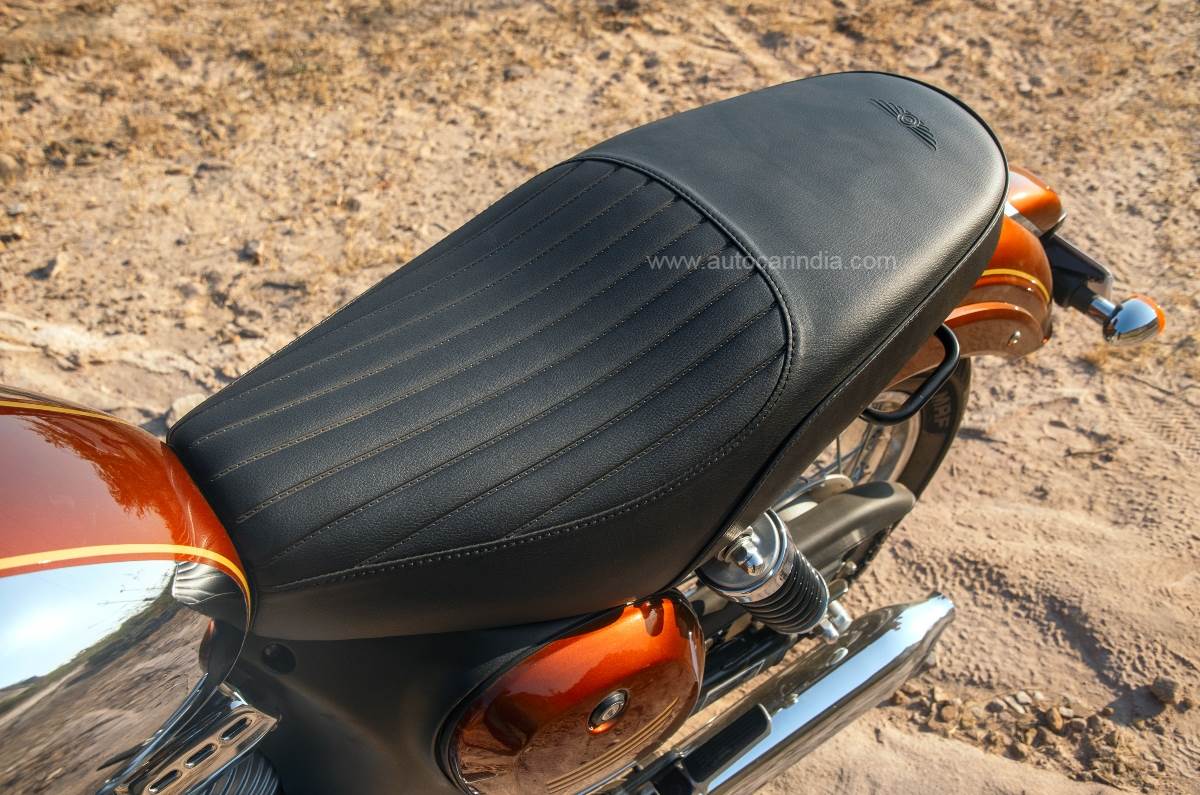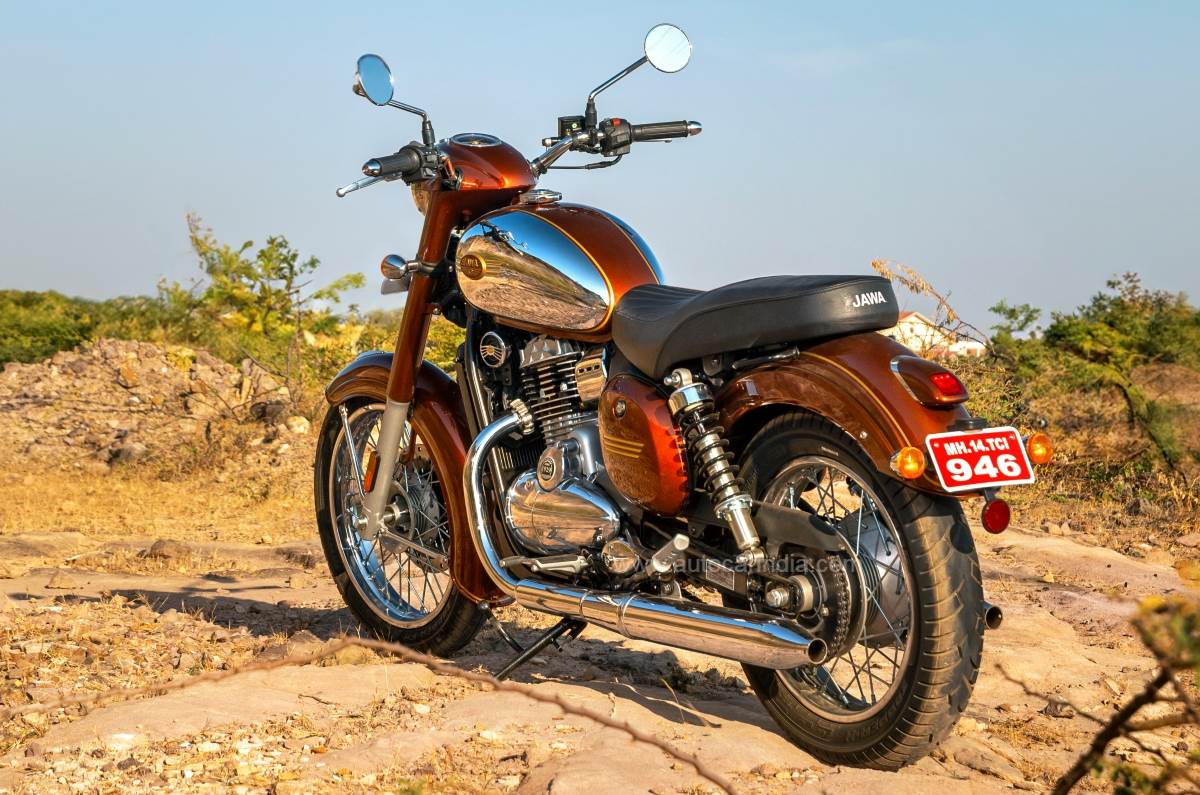The iconic Jawa has been overhauled with a new engine, chassis, more ground clearance and a new name.
At first glance this might seem like the same Jawa that was launched a few years ago. And while it does look near identical, there are some significant changes hiding under the skin. This one has a new engine, a different chassis, more ground clearance, wider tyres and even a new name – say hello to the new Jawa 350.
Jawa 350 design, build quality
In true Jawa fashion, the 350 continues to look the part. You still get a round halogen headlight that’s set quite high, the same spoked wheels with tubed tyres, the chromed fuel tank and the iconic dual exhausts. However, there’s now a new mystic orange paint shade on offer that looks quite nice, the instrument cluster has also been redone and it also gets a redesigned seat.
In conclusion, the new Jawa 350 is instantly recognizable for what it is. The generous use of chrome and the subtle detailing all throughout help exude a classy vibe. Fit and finish is also improved and a big step up from what we’ve seen on earlier Classic Legends models. I particularly like the way they’ve managed the cables around the bike. However, like on the older Jawa, the lower numbers on the horizontally-set speedo are still hard to read.
Jawa 350 engine, riding experience
At the heart of the changes, quite literally, is the new 334cc engine that we’ve seen on Yezdi models before. This replaces the 294cc unit that was there earlier and the output has also changed. This one is down by around 5hp (at 22.5hp) but torque has gone up by about 1 Nm (at 28.1Nm).
Judging by the specs, this might seem like the opposite of an upgrade. But the new engine produces its peak power 750rpm earlier and peak torque 500rpm earlier than the 294cc unit. And in the real world that effect is even more prominent than it sounds on paper.
This engine really impresses with its low end grunt and tractability. In fact you can potter around at 20kph in 3rd gear and it will accelerate without hesitation. Refinement could have been better though, as right from the midrange itself you can feel the vibes on the handlebar and on the footpegs.
To account for the larger engine, Jawa says it has also improved the cooling system. However on our ride, we did encounter a high temperature warning and some minor coolant overflow, followed by a check engine light when riding through some traffic. The temperature warning did go away after a bit but the check engine light stayed on for the rest of our ride. It must be said however that despite these issues, the bike continued to run without any performance restrictions.
The Jawa 350 also has a nice, meaty sounding exhaust note and what’s nice is that buyers can remove the db killer by unscrewing two bolts, for an enhanced sound.
Jawa 350 transmission, brakes, features
The Jawa 350 also packs in a slip and assist clutch and it works quite well. The clutch lever itself is light and easy to modulate, even in traffic, and the 6-speed gearbox is precise enough. Stopping power is more than adequate but the tall front end dives quite a bit under hard braking. The Jawa now also gets dual-channel ABS as standard and other features of note are hazard lights, a dual horn, two trip meters and a side stand engine cut-off.
Jawa 350 chassis changes
The Jawa 350 also benefits from a new chassis. The main frame is still a double cradle unit but the subframe is new and the swingarm has been extended, because of which it has a longer wheelbase (1449mm). The suspension too, has been reworked and is taller than before, because of which the seat height has gone up (from 765mm to 790mm) and so has the ground clearance (from 165mm to 178mm).
Weight is now 194kg, which is just 1kg shy of the Royal Enfield Classic 350. Despite these changes that make it more substantial, the Jawa 350 continues to be an approachable and easy to ride motorcycle. The tyres too are wider than before at both ends, with the front being a 100/90-18 and the rear being 130/80-17.
Jawa 350 ride, handling
On the road, the Jawa 350 feels nimble and light on its feet and it turns in quite eagerly despite that raked front end and the larger 18-inch wheel.
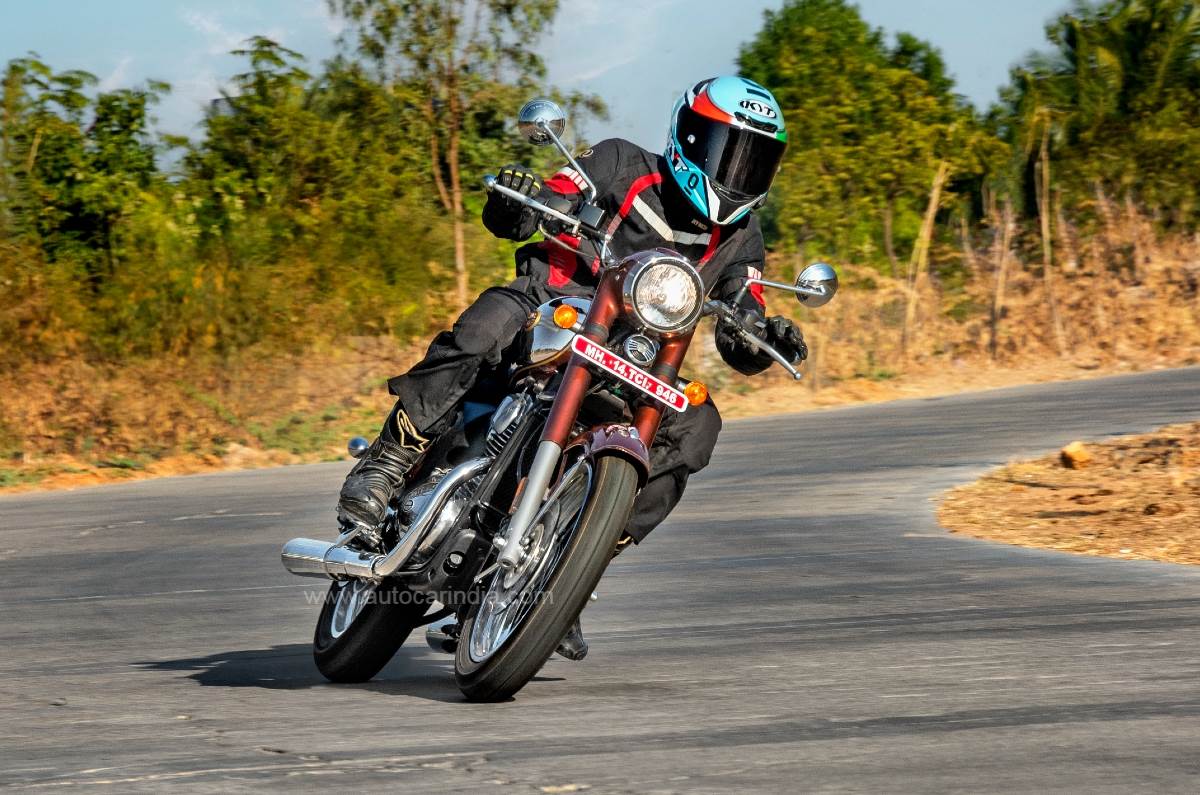
The ride, especially at the rear, is on the firmer side but it never feels painful, thanks to a well padded seat which we will get back to soon. Overall, the Jawa 350 feels composed be it in traffic or out on the highway.We also tackled a light off-road trail on our ride and the Jawa dealt with it with ease.
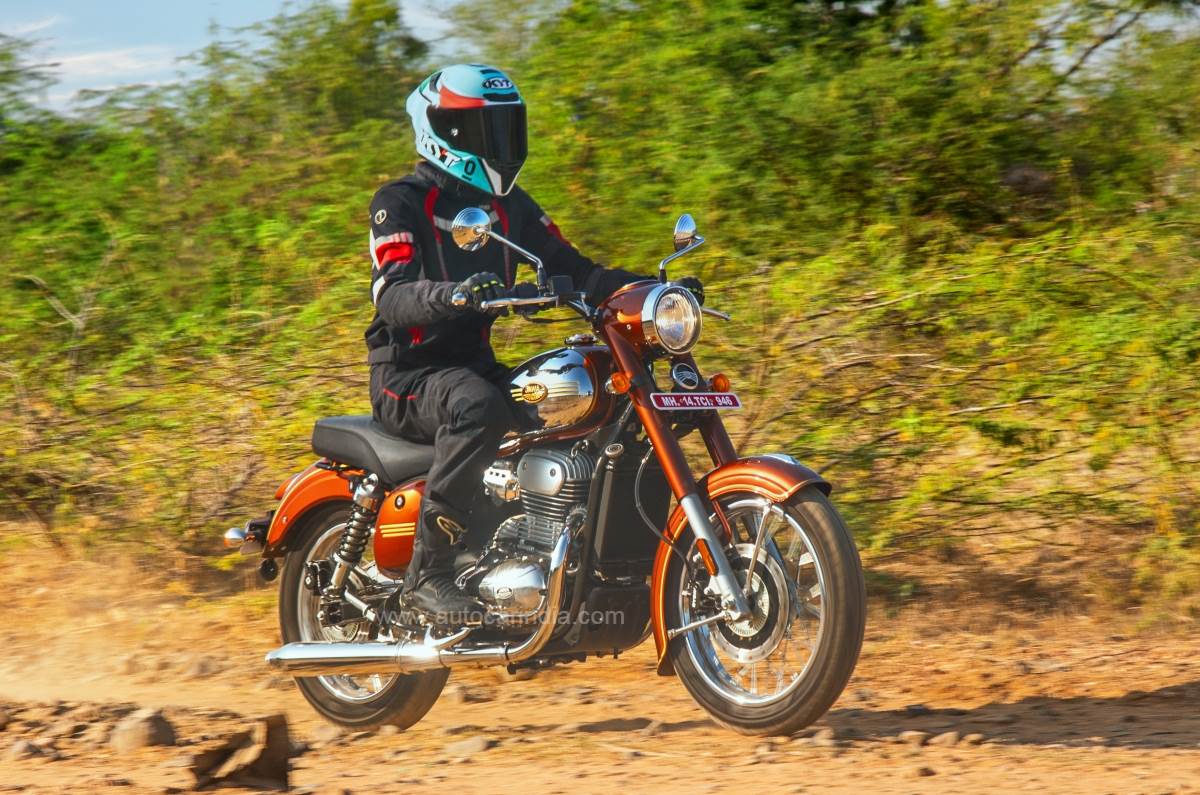
Jawa 350 ergonomics, accessories
The ergonomics of the Jawa 350 are also quite comfortable for my 5’11” frame. I’m sat nice and upright and there isn’t a long reach to the handlebar. What also helps matters is the redesigned seat. I spent hours in the saddle and it has left me with no discomfort whatsoever. However despite the raised seat taller riders will still feel that they’re sitting a little too knees up, but it won’t be an issue for the average-heighted rider.
The Jawa 350 is also available with a range of accessories right from a large windscreen, to leg guards and even saddlebags for your luggage.
Jawa 350 price, verdict
The outgoing Jawa was priced at Rs 2.04 lakh (ex-showroom, Delhi) for the dual-channel ABS equipped version and in comparison, this new Jawa 350 is priced at Rs 2.15 lakh. Now that marks just a Rs 11,000 hike and considering the scale of the changes, it does feel worth the extra cash. But that now brings it very close to the evergreen and hugely successful Royal Enfield Classic 350, which starts at Rs 1.93 lakh and tops out at Rs 2.25 lakh. Just how many buyers looking for a classic motorcycling experience opt for the more modern Jawa over the Classic 350 remains to be seen.
Overall, the new Jawa 350 marks a step in the right direction for Classic Legends. The motorcycle continues to look special, it has composed road manners and the improved fit/finish is also a welcome sight. As such, it now does bring more to the table than before.
Also See:




















